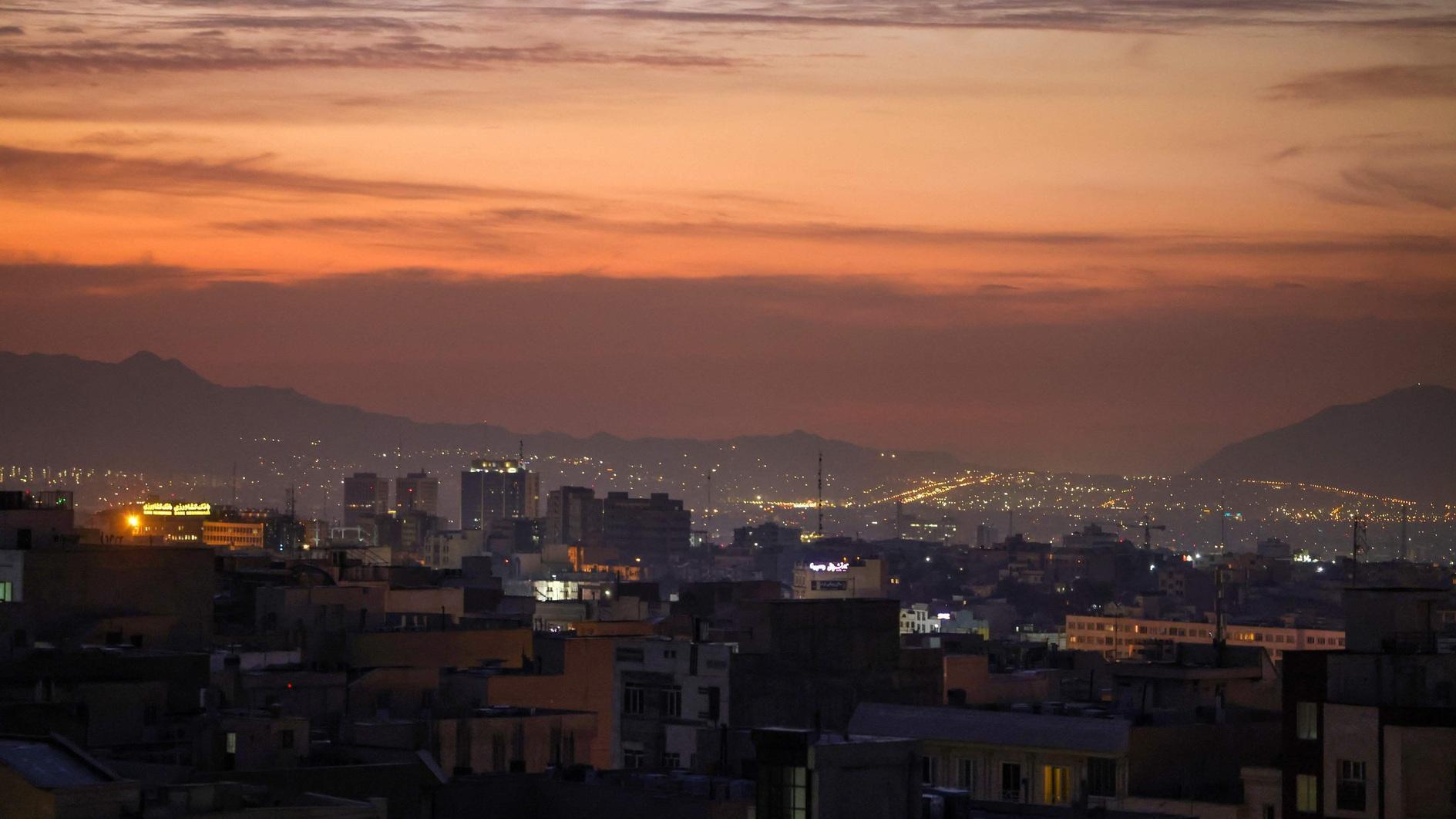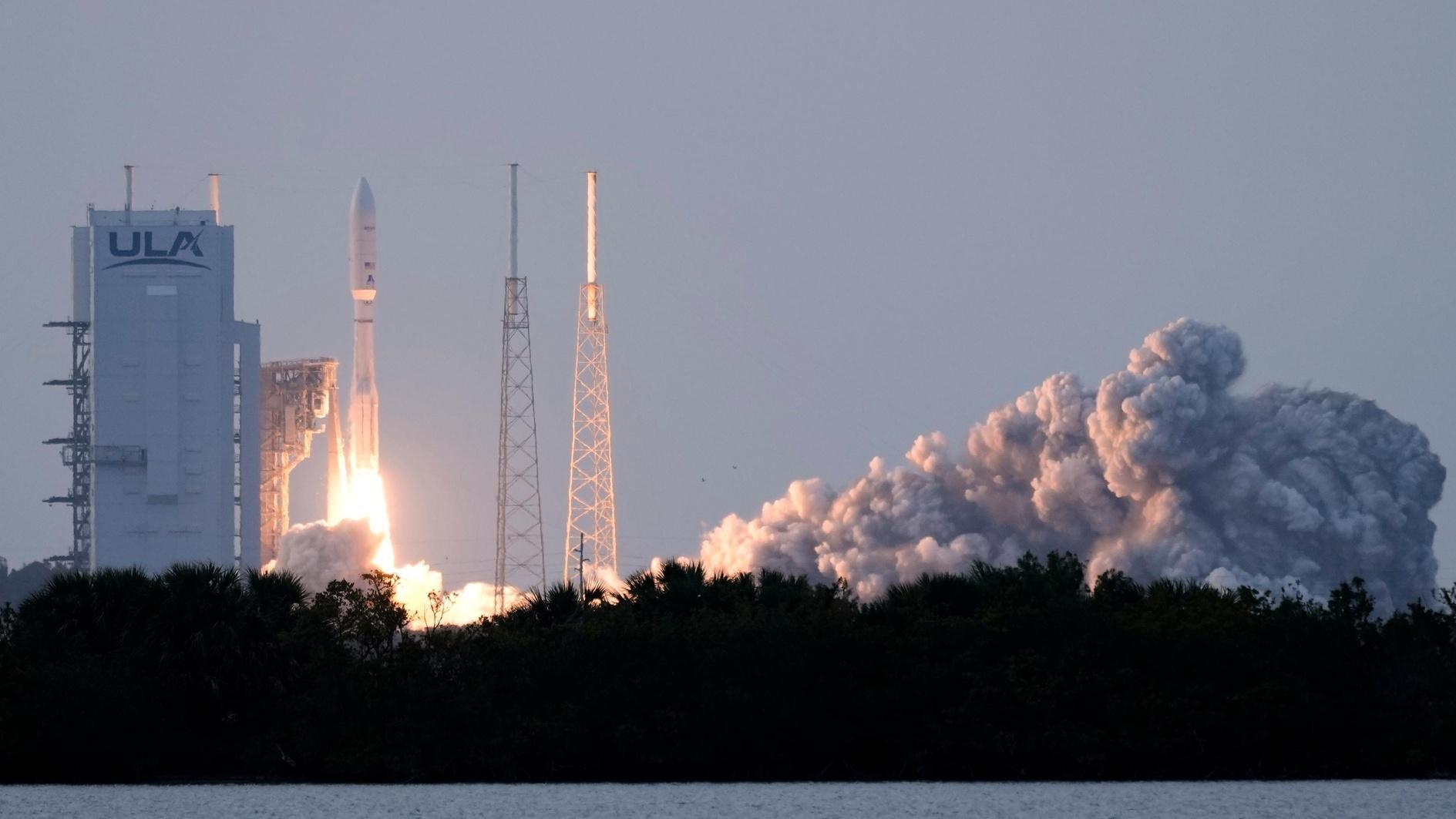Iran says two dead in Israeli strikes on military targets
TEHRAN

Iran reported that an Israeli attack targeted military sites in the Islamic Republic on Saturday, resulting in the deaths of two soldiers. This strike occurred almost a month after Israel vowed retaliation for a missile barrage that sparked fears of a full-scale Middle East war.
The Israeli military stated its retaliatory airstrikes targeted Iran's missile manufacturing facilities, missile installations, and other systems in several regions, warning Iran it would "pay a heavy price" if it responded.
Iran confirmed that Israeli strikes targeted military sites in Tehran province, surrounding the capital and other parts of the country, causing "limited damage." The Iranian armed forces later reported that two soldiers were killed in these strikes.
Israel had previously vowed retaliation against Iran for its Oct. 1 barrage of 200 missiles, marking the second-ever direct attack by Iran on its arch-foe. While most of those missiles were intercepted, one person was killed.
The Israeli retaliation drew condemnation from Hamas and Saudi Arabia, both of whom warned against further escalation. Israel is currently engaged in combat on two fronts: a full-on war with Iran-backed Hezbollah in Lebanon and ongoing conflict in Gaza with Palestinian Hamas militants. The United Nations has warned that the "darkest moment" of that conflict is unfolding.
"Based on intelligence, IAF (Israel Air Force) aircraft struck missile manufacturing facilities used to produce the missiles that Iran fired at the State of Israel over the last year," said Israel's military in a statement.
In recent strikes, Iran carried out two direct missile barrages against Israel since April. Meanwhile, Hezbollah, armed and financed by Tehran, has been consistently firing over Israel's border for more than a year.
"Simultaneously, the IDF (Israel Defense Forces) struck surface-to-air missile arrays and additional Iranian aerial capabilities," the statement continued, noting that the "retaliatory strike has been completed and the mission was fulfilled." Israeli aircraft "returned safely," said a military spokesman.
Two dead in Israel
In the broader regional conflict, armed groups in Yemen, Iraq, and Syria, aligned with Iran, have launched attacks as fallout from the Gaza war continues.
At approximately the same time as Israel's strikes on Iran, Syrian state news agency SANA reported an Israeli air assault targeting military positions in central and southern Syria. Additionally, the Islamic Resistance in Iraq claimed responsibility for a drone attack on a "military target" in northern Israel.
After concluding strikes on Iran, the Israeli military intercepted two drones crossing into Israel from Lebanon. On Friday, Israeli officials reported two deaths from shrapnel wounds following a Hezbollah rocket barrage into Northern Israel.
U.S. National Security Council spokesman Sean Savett categorized Israel's response to Iran as "an exercise in self-defense" targeting strictly military objectives. He urged Iran to "cease its attacks on Israel so that this cycle of fighting can end without further escalation," emphasizing the U.S. desire to "accelerate diplomacy."
The Israeli military accused "Iran and its proxies" of "relentlessly attacking Israel" since Hamas's attack on October 7, marking the onset of the Gaza war. That attack resulted in the deaths of 1,206 people, mostly civilians, according to an AFP tally of Israeli figures. Dozens of individuals seized during the attack remain held by militants in Gaza.
Israel's retaliatory bombardment and ground operations in Gaza have resulted in the deaths of 42,847 people, primarily civilians, according to data from the health ministry in the Hamas-run territory, figures considered reliable by the U.N.
Flights resume
Following almost a week of halted air traffic, Iran temporarily suspended all flights but later announced that flights would "return to normal" from 9:00 am (0530 GMT).
Iran's April direct assault against Israeli territory involved over 300 drones and missiles, purportedly a retaliatory measure for a strike on Iran's consular annex in Damascus that killed members of the Islamic Revolutionary Guard Corps. Subsequent explosions in Isfahan province were cited as Israeli retaliation by U.S. officials, according to American media.
Iran's air defense force confirmed that Israeli strikes targeted several military bases in provinces, including Tehran, Khuzestan, and Ilam. The attacks were described as causing "limited damage" while being intercepted. State television reported blasts around the capital attributed to the "activation of the air defense system."
Possible 'atrocity crimes'
Iran stated its Oct. 1 missile launch against Israel was in retaliation for Israel's air raid that killed Hezbollah chief Hassan Nasrallah and a Revolutionary Guards General in Lebanon, as well as for the assassination of Hamas political leader Ismail Haniyeh in Tehran.
On Friday, Gaza's health ministry accused Israeli forces of attacking the last functioning hospital in North Gaza during a raid that reportedly killed two children. The Israeli military confirmed operating near Kamal Adwan Hospital in Gaza's Jabalia refugee camp but denied awareness of live fire or strikes on the hospital itself.
The Israeli military claims its operations aim to dismantle Hamas's operational capabilities attempting to regroup in the north. Meanwhile, Gaza's civil defense agency reported that Israeli drone strikes on Friday killed 12 people waiting to receive aid near the Al-Shati refugee camp. There was no immediate comment from the Israeli military regarding this incident.
Volker Turk, the United Nations High Commissioner for Human Rights, expressed grave concerns about the situation, stating that Israel's policies in northern Gaza "risk emptying the area of all Palestinians." He warned that "we are facing what could amount to atrocity crimes, including potentially extending to crimes against humanity," emphasizing that the situation is worsening by the day.
The ongoing conflict has resulted in significant humanitarian concerns, with calls from the international community for a ceasefire and a reconsideration of military tactics to safeguard civilian lives. The pressure continues to mount on all parties to engage in dialogue and find a peaceful resolution to the conflicts that are causing immense suffering and displacement.
















